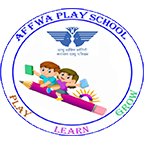CURRICULUM
Quality education in the early years of preschool sets a firm foundation in the overall development of a child. The school’s curriculum is based on “SANKALP”-A teaching learning methodology.It is a promise that AFWWA has taken to ensure quality education to every child attending the Play School.School provides varied teaching methodologies like play way method, project method, Montessori, Multiple Intelligence ,Te Whariki ,7 E concept, high scope etc. Curriculum is based on teaching methodologies that has been adopted by the latest trends in education systems world over in order to teach topics specified in the AFWWA Curriculum .The methodology also takes into account the learning outcome designed by National ECCE Policy, AFWWA Curriculum along with Code of Administration for AFWWA Play School 2015.SANKALP attempts to simplify the prescribed curriculum into subject areas that would create an interest in learning within the children.
Theme based Curriculum.1. Assembly : Based on the theme of the month. Prayers ,rhymes ,phonics ,pre-math concepts & many more concepts introduced & habit formation takes place with repetition.
2. Circle Time : Enhances bonding between the Teacher & Student.
3. Classroom Time
a).Group Time– Focus on phonics & pre number Concept.It includes activities, visits &
oral work only.
b). Learning Centre time- Table time :It allows Teacher to spend time with children
individually or in small groups. Its aim is to explore learning through play.
c) Activity time & Story Time - Activity time helps promote environmental Literacy,
health & nutrition, financial literacy, self help skills and digital literacy.Life skills,Fine motor skills,
gross motor skills are developed by activities like self grooming,Colouring worksheets, clay work,
stamping, beading, lacing, buttoning, organising things, helping around, healthy eating habits,
& language skills, spend wisely, create & share.
From an oral rendition of stories to today’s methodology of storytelling includes techniques like
Show & Tell, Read Aloud ,action story ,puppetry, Visualisation etc.The concept of story based
learning is utilised during story telling. The magic of storytelling is to bring the curriculum to life.
4. Fitness Time – Indoor & Outdoor Games & Activities (Running,hopping,walking,Galloping,sliding, leaping,jumpingYoga ,Aerobics & Zumba.).During Fitness time, 7 Es model -The seven stages of teaching & Learning is adopted during activities \of sports & games.It is a fun filled time for all children.
Key Areas in Curriculum:
- Learning by doing
- Learning by exploration
- Develop Creative expression
- Building communication skills
- Encouraging positive peer interaction
- Theme based Concept Time
- Personal, Social ,Emotional & Moral Development
- Cognitive Development
- Pre-math concepts with Math readiness
- Language and Phonics
- Inculcating Life-long learning skills
- Development of Aesthetic appreciation
Activities Involved
- Free play Time
- Story Time
- Water Play
- Sand Play
- Science Time
- Creative Time
- Music Time
- Library Time
- Field trips/Visits
- Puppet shows
- Public speaking
- Traffic rules Awareness Time
- Green area connect time-Nature time
- Technology Corner
- Fitness Time
- Healthy eating habit Time
- Celebration of festivals and special days for responsiveness to Cultural diversity.
- Moral Lesson Time
- Awareness Time Like Good touch& Bad touch
